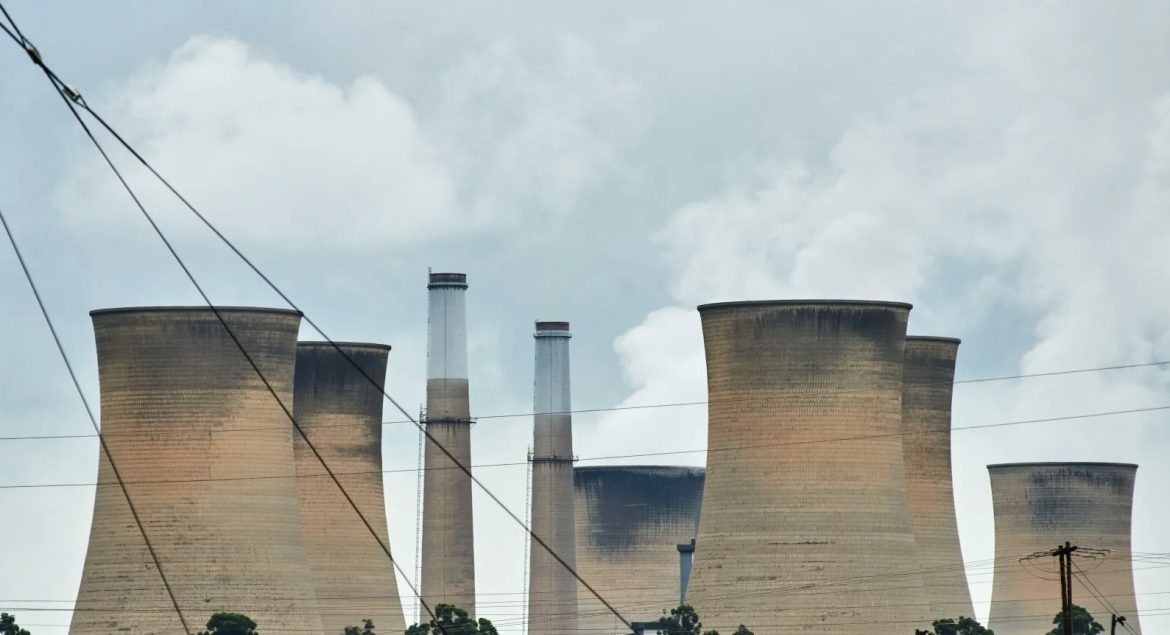KEY POINTS
- South Africa’s coal phase-out faces economic, infrastructural, and social challenges.
- Renewable energy development requires significant investment and grid modernization.
- Energy transition programs can mitigate job losses and socio-economic impacts.
South Africa, a nation heavily reliant on coal for its energy needs, faces significant challenges as it endeavors to transition toward cleaner and more sustainable energy sources.
Coal has long been the backbone of South Africa’s energy sector, accounting for approximately 77 percent of the country’s energy needs.
However, this dependency has had a very high price to pay in terms of the environment as South Africa especially ranks among the leading emitters of carbon.
Switching away from coal is not only an environmental issue but a mix of socio-economic issues which should be approached very carefully.
Reliance on coal and its effects on the economy
Coal mining has long been an essential part of the national industry in South Africa: according to the data as of 2022, it directly engaged up to 91,000 people.
The industry sustains entire communities, especially in areas such as the Mpumalanga that forms the hub of South Africa coal country. To many families, coal is not just a fuel, they live on it.
Removing the demand for coal means striking at the economic concerns of those places. Employment reduction is a big factor, given the fact that the shift to green energy will not allow for the re-employment of workers of the same type or in the same numbers.
In 2020, jobs in the renewable energy sector in Africa totaled over 320,000, with approximately 73,000 in Southern Africa.
For this purpose, there must be vast training program and heavy capital infrastructure in other sectors to avoid massive unemployment.
Potential Infrastructure barriers in transitioning
South African energy system is very much dependent on coal, from power plants to railway systems that transport coal across the country.
It is evident that in order to support the integration of newer generation resources like solar and wind energy, considerable changes are required in the existing systems.
Also, the high cost of renewable energy projects are another challenge
While the global cost of solar and wind technologies has fallen in recent years, South Africa’s fiscal constraints make large-scale investments challenging. The transition process has been worsened by public debt and limited ability to access international financing.
Social and political oppositions
There is therefore a strong historical connection between the coal industry and socio-politics of South Africa. Employees, through their unions, citizens through their associations, and even politicians have downplayed the move to phase out based on potential socio-economic implications.
Eskom, the state-owned power utility, has come under criticism for not explaining how it will transition while ensuring energy security.
In addition, the energy crisis has reinforced concerns that renewable energy may not be stable to replace the role played by coal. Load shedding, which has become a household name in South Africa captures a terrible situation in the power sector.
This is the reason why no policymaker will dare to phase out coal without equal assurance that renewables can meet the country’s energy demands consistently.
The path forward
Solving these challenges is also possible only with a complex and involving strategy.
South Africa has an ambitious plan that is already underway to finance the transition through the Just Energy Transition Partnership (JETP). These funds were meant to support renewable power generation, worker retraining, and upgrade of the power transmission system.
The workers require re-training to perform highly skilled jobs in the renewable power sector and its related industries.
Community stakeholders need to be involved in equal measures to foster their confidence and guarantee the entire community will adapt to the new way of life.
There should be an opportunity for those communities dependent on coal to invest in renewable energy capabilities directly.



